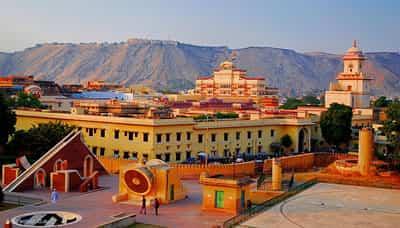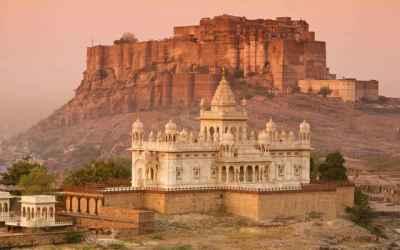Ecotourism in Rajasthan: Best Practices and Destinations
Rajasthan: A Treasure Trove of Ecotourism
The Essence of Ecotourism
Ecotourism goes beyond traditional tourism. It is about experiencing and understanding local ecosystems, cultures, and traditions in a way that fosters environmental and cultural conservation. With a wide range of attractions, Rajasthan presents an excellent platform for travelers to embrace sustainable tourism practices and contribute to the welfare of local communities.
Best Practices for Ecotourism in Rajasthan
1.​ Respect Wildlife and Natural Habitats: While exploring Rajasthan's natural reserves and wildlife sanctuaries, it is vital to respect the boundaries set for tourists. Stay on designated trails, avoid disturbing wildlife, and never litter. By practicing responsible tourism, you help maintain the delicate balance of these ecosystems.
2. Engage with Local Communities: To truly experience Rajasthan's cultural heritage, interact with local communities who are the custodians of unique traditions and crafts. Opt for homestays or community-based tourism initiatives, which provide an opportunity to learn about local customs, support local economies, and contribute to the preservation of indigenous knowledge.
3. Choose Sustainable Accommodation: When selecting accommodations for your trip, look for eco-friendly hotels, camps, or lodges that minimize their impact on the environment. These establishments often adopt practices such as rainwater harvesting, waste management, and use of renewable energy sources.
4. Conserve Water: Rajasthan is known for its arid landscapes, and water scarcity is a pressing issue. As a responsible traveler, be mindful of your water consumption. Take shorter showers, re-use towels, and avoid wasting water wherever possible.
5. Support Local Conservation Initiatives: Opt to visit and contribute to organizations and projects that are working towards the preservation of Rajasthan's natural and cultural heritage. Your participation can range from volunteering for reforestation drives to supporting local craftspeople and artisans.
Top Ecotourism Destinations in Rajasthan
1. Ranthambore National Park:
Ranthambore National Park, located in the Sawai Madhopur district of Rajasthan, is a haven for wildlife enthusiasts. Famous for its tiger population, the park also boasts a diverse range of flora and fauna. Embark on a safari to catch a glimpse of the majestic Royal Bengal Tigers, leopards, sloth bears, and numerous bird species that call this park home.
2. Sariska Tiger Reserve:
Situated in the Alwar district, Sariska Tiger Reserve is another prominent ecotourism destination in Rajasthan. This protected area provides shelter to the endangered Bengal tigers and houses various other wildlife species. Explore the reserve on a jeep safari, and keep your eyes peeled for leopards, jungle cats, sambar deer, and countless bird varieties.
3. Desert National Park:
If you wish to immerse yourself in the desert ecosystem, head to Desert National Park in Jaisalmer. Encompassing an extensive area, the park is home to numerous flora and fauna species that are adapted to the harsh desert conditions. Spot wildlife such as the great Indian bustard, desert foxes, chinkara, and sandgrouses as you explore the dunes and scrublands.
4. Kumbhalgarh Wildlife Sanctuary:
Located near the historical fort of Kumbhalgarh, this sanctuary is known for its biodiversity and scenic beauty. Brace yourself for encounters with wolves, leopards, hyenas, sloth bears, and a wide array of avian species. You can also explore the picturesque Kumbhalgarh Fort, a UNESCO World Heritage Site.
5. Keoladeo National Park:
Formerly known as Bharatpur Bird Sanctuary, Keoladeo National Park is a paradise for birdwatchers. It is a vital wintering ground for migratory birds, including the rare Siberian crane. Bird enthusiasts can wander along the well-defined trails and observe over 370 species of birds in this UNESCO World Heritage Site.
Rajasthan: A Wonderland for Eco-Travelers
Rajasthan's commitment to ecotourism is commendable. By embracing sustainable practices and offering a variety of ecotourism destinations, the state sets a shining example for other regions to follow. Whether you are an adventure-seeker, wildlife enthusiast, or culture lover, Rajasthan has something to offer for everyone who wishes to explore the wonders of nature responsibly.
So, pack your bags, tread lightly, and embark on a journey that not only enriches your soul but also contributes to the conservation of Rajasthan's ecological treasures. Share this blog post with your fellow travelers and join hands in promoting responsible and sustainable ecotourism.
Disclaimer : The information provided in this blog is for general informational purposes only. While we strive to keep the content accurate and updated, TravelSetu assumes no liability for errors or omissions. If you believe any part of this blog infringes your rights or causes concern, please notify us immediately at info[at]travelsetu[dot]com so that appropriate action can be taken.







